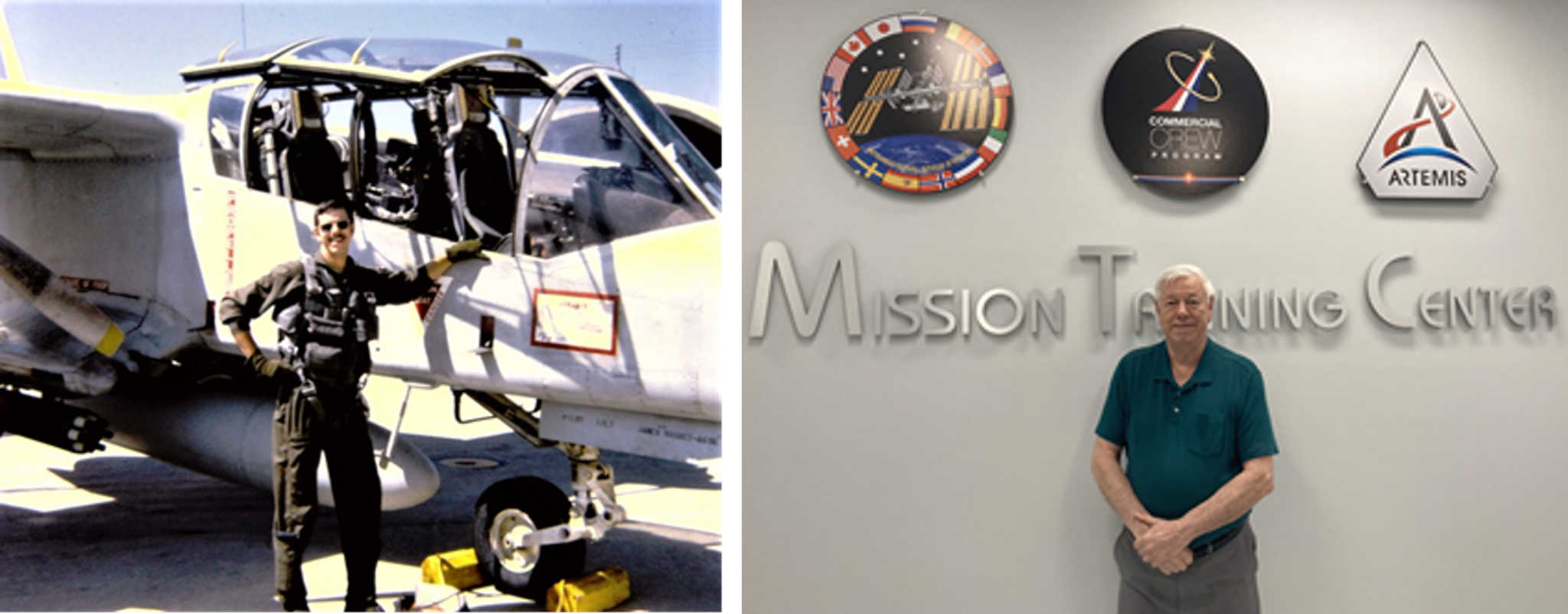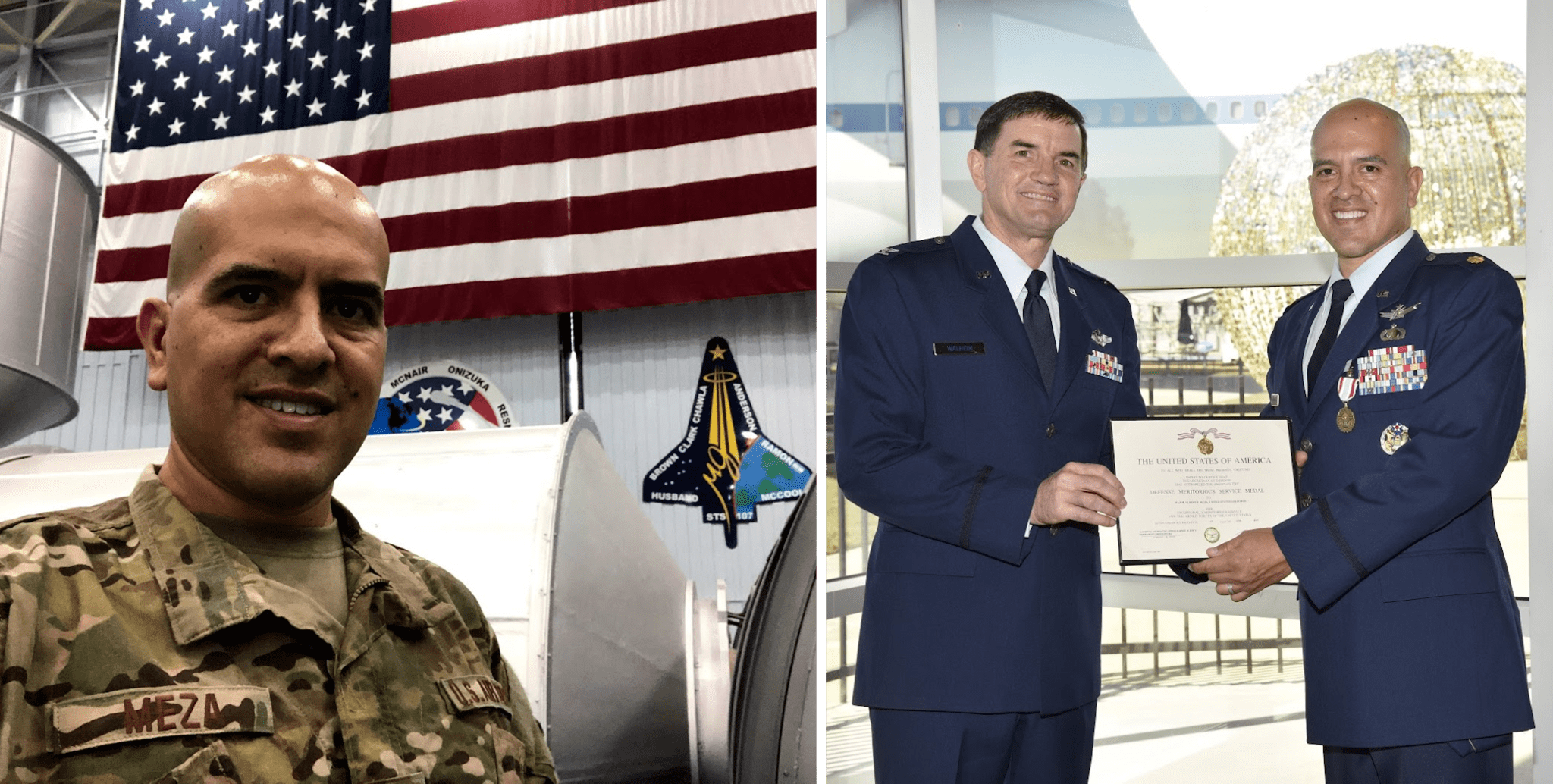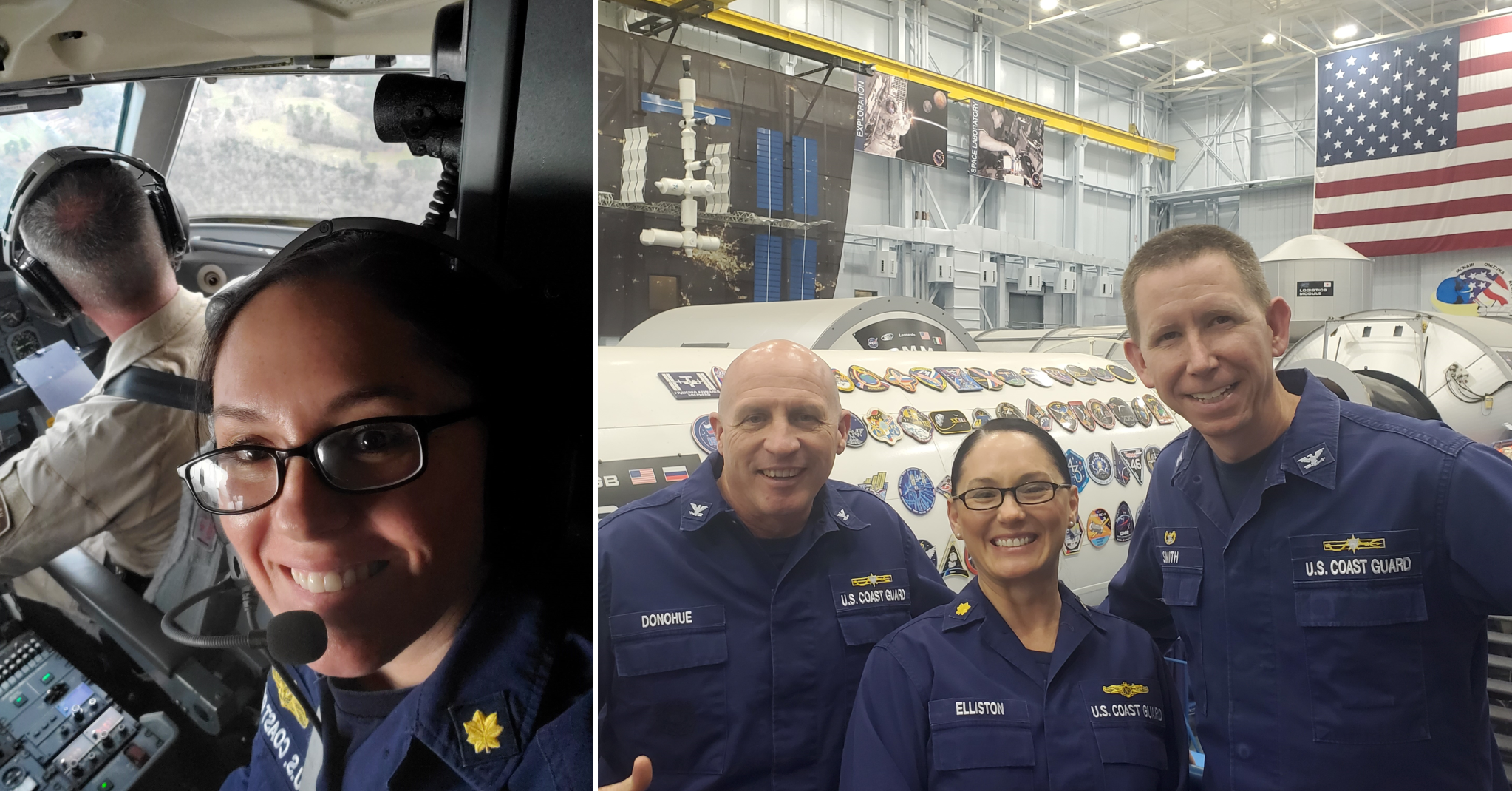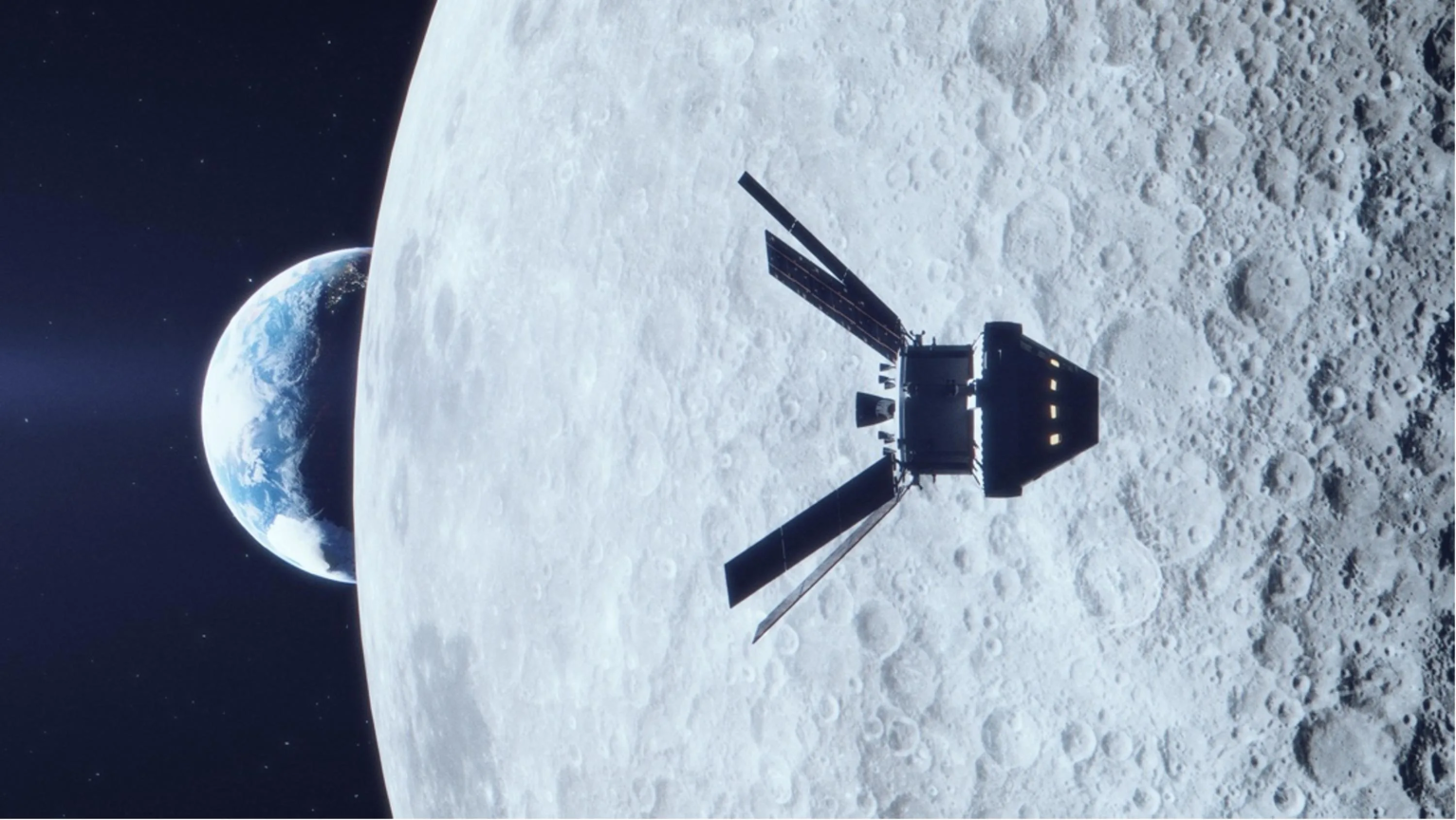NASA and the military have shared strong connections since the agency’s early days. From the nation’s earliest aeronautic research and the recruitment of test pilot astronauts to modern-day technology development, satellite management, and planetary defense, NASA has built a longstanding partnership with the military.
This legacy of collaboration has created natural opportunities for former service members to join NASA’s ranks at the conclusion of their military careers.
Lewis Swain is one of the many veterans working at Johnson Space Center in Houston today. Swain was recruited by NASA contractor McDonnell Douglas after leaving the military in 1980. He commissioned as a second lieutenant and served in the Air Force for 12 years, flying nearly 200 combat missions during two tours in Vietnam.
“The shuttle program was starting, and they needed ex-military pilots to serve as simulation instructors,” he said. Swain specialized in control and propulsion systems instruction for several years before becoming the training team lead for shuttle missions. Following the Challenger accident in 1986, Swain transitioned to supporting the International Space Station Program and Return to Flight evaluations. He has been a civil servant since 1989 and a training facility manager since 2006.
NASA’s Pathways Internship Program has also provided a point of entry for former service members. John Smith was studying mechanical engineering at the University of Texas at El Paso when he made an impactful Johnson connection. “I met with a former flight director, Ms. Ginger Kerrick, at a career fair hosted by my university,” he said. “Pathways happened to be accepting applications at the time and she enthusiastically encouraged me to apply. I never expected to get a response, much less an offer. I couldn’t say yes fast enough when it came!”
For others, the NASA SkillBridge Program has been instrumental in transitioning from the military to civilian careers. The program connects individuals in their final months of military service with a NASA office or organization. SkillBridge fellows work anywhere from 90 to 180 days, contributing their unique skillsets to the agency while building their network and knowledge. Since fellows’ pay and benefits are provided by their military branch, their support comes at no additional cost to NASA.
Johnson hosted the agency’s first-ever SkillBridge fellow in spring 2019, paving the way for many others to follow. Albert Meza, an Air Force space professional, was among this first wave of service members at NASA.
Approaching retirement from the Air Force in November 2019, Meza planned to move his family back to Houston that summer, then join them in the fall once his military service ended. A colleague encouraged him to apply for SkillBridge because it would let Meza move with his family. Meza was skeptical, noting the military is not typically flexible on moves or timelines, but after a quick meeting with his commanding officer and finding a Johnson team to work with, he was on his way to Houston. “It was unbelievable,” he said. “It kind of fell into my lap.”
Today Meza is a payload integration manager for NASA’s CLPS (Commercial Lunar Payload Services) program, working within the Exploration Architecture, Integration, and Science Directorate at Johnson. In this role, he acts as a liaison between payload teams and the vendor developing a lander to help ensure flight requirements are understood and met.
Meza is also one of SkillBridge’s on-site coordinators. He said that when he first arrived at Johnson, he realized the program was relatively unknown. “I thought, I need to take the responsibility for waving the flag for SkillBridge at NASA.” Meza works tirelessly to educate service members, military leaders, and NASA supervisors about the program’s benefits. He also emphasizes how easy it is for NASA supervisors to host a fellow. “You get someone for six months who is already disciplined, loyal, and has all of these highly trained credentials,” he said. “Any civil servant supervisor can host a SkillBridge fellow. The only real requirement is that the supervisor can provide IT assets and a work location.”
Johnson has hosted more than 25 SkillBridge fellows since the program’s inception. Many fellows have since accepted full-time positions with NASA, including Patricia “Trish” Elliston. Meza found her a SkillBridge position with the center’s Protective Services Division in spring 2023. Elliston relocated to Houston in 2020, a few years prior to her anticipated retirement from the U.S. Coast Guard. Living in Houston and interacting with numerous NASA employees, along with prior experience working with the agency in maritime safety, convinced Elliston that Johnson was the place for her.
“During my internship I networked as much as possible and made every effort to learn as much as I could so that I could be better prepared to start my civilian career,” Elliston said. “I worked hard and learned a lot, and when a job opportunity became available, I applied.” She now works as a cyber intelligence analyst within the Flight Operations Directorate.
Meza notes that SkillBridge is a transition program, not a hiring program, and that some fellows have not received a job offer or have decided to pursue other opportunities. What happens after a SkillBridge fellowship depends on each individual and whether they’ve demonstrated their potential and built relationships in a way that turns this ‘foot in the door’ into a full-time position.
Interested in becoming a SkillBridge fellow at NASA? Learn more about the program and submit your application here.
from NASA https://ift.tt/SRpaM0J





No comments:
Post a Comment